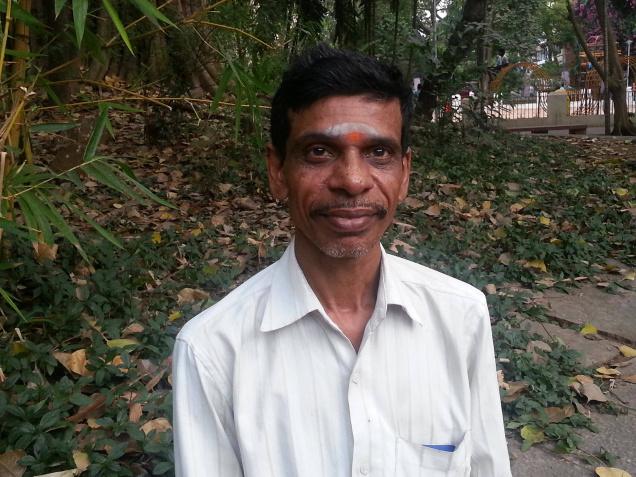
On a muggy evening at Nageswara Rao Park, Malaiarasan is enacting a scene from his childhood. “‘Dei, what are you watching? Go there! Fetch that tool!’ That’s how my grandfather spoke to me when I worked as his assistant. His house, on Eldams Road, was right across my father’s. But I spent most of the time at my grandfather’s house, watching him make harmoniums. His name was Madurai N. Ponniah, very famous!” he tells me, his eyes speaking as easily as words. “I was still in school then, but wasn’t interested in studies. I used to dump my bag, and go to the beach with a friend. When I returned home, they would spot the sand on my legs and beat me.”
Malai’s heart was always tuned to music. Not surprising, given that, for three generations, their family has made, tuned and serviced musical instruments. He learnt to make harmoniums from his grandfather, the art of tuning them from his father, and the skills of cutting and placing the keys from his uncle, M. K. Ponambalam. The harmonium is made of two types of wood; the outer body is made of teak (“for show”), while the keyboard is a jaathika palaga, as it won’t bend, is easy to play and produces a nice sound. “Grandfather’s harmoniums were much sought after,” Malai says.
“The instrument which maestro Ilaiyaraja uses, was made by my grandfather in 1940s, for Ilaiyaraja’s elder brother,” says Malaiarasan with obvious pride. Many top artists have visited his shop – M.S. Viswanathan, T.M. Soundararajan, T.R. Mahalingam… the list goes on. Malai’s grandfather also made a gamaka harmonium. After a quick alapana in Khambodi ragam, Malai says the gamaka harmonium can produce that effect. “That’s the kind of musical family I come from.”
Since he took up harmonium work as a lad of 15, Malai has serviced about 10,000 harmoniums. Are there so many in the city? “Wherever they sing bhajans, there’s one,” he says, as he breaks into a bhajan. There’s a sentimental value attached to the older instruments. “People call me and say, ‘My mother used it. Can you repair it?’ The timbre of the older instruments is excellent.” Malai can also make new instruments, but he does them against orders. “A harmonium now costs Rs. 4,500. In grandfather’s time, it was just Rs.150 or Rs. 200,” smiles the 51-year-old.
A few years ago, Malai started repairing veenas as well. “I owe that to the owner of Murali Musicals. He taught me and encouraged me. I also started listening to bhajans and attending cutcheris to hone my knowledge. I do not have formal education, but I am interested in learning about music.”
Repairing a veena is a highly skilled job, says Malai, explaining how he places the 24 melams on a bed of wax, mixed with kungiliyam, sambarani and rosanam, so that it sets like stone. “That’s when the sruti stays,” he says.
Malai lives in Chrompet. His two sons are also in the musical line. One is a salesman in a musical store and the other repairs veenas. “But after my father, it is my wife who’s my right hand. I have not saved money over the years, but I’m still very keen on repairing musical instruments. I will never stop my work. You know, I just want to die, one day, over a veena or a harmonium, as I’m working on it,” and he flops his hands and hangs his head, mimicking the final act.
(A weekly column on men and women who make Chennai what it is)
source: http://www.thehindu.com / The Hindu / Home> News> Cities> Chennai> Columns / by Aparna Karthikeyan / May 12th, 2013
Please, let me know the contact details of Mr malaiarasan